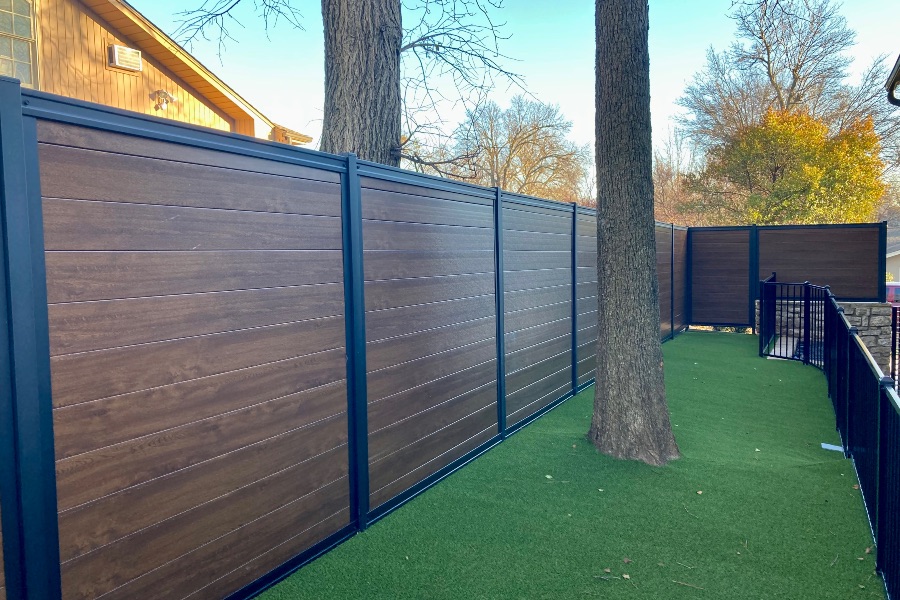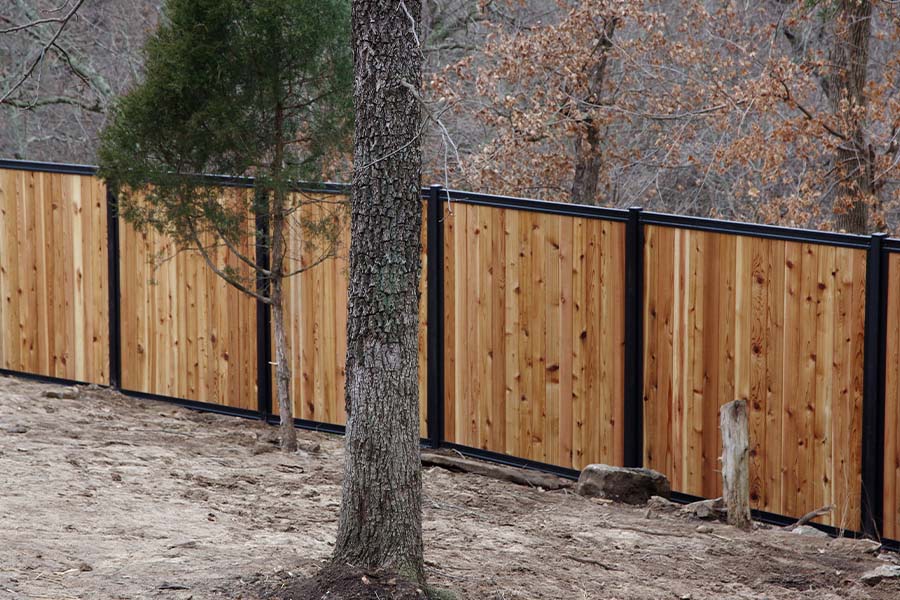All Categories
Featured
If you're considering mounting a fence around your building, recognizing the authorization requirements in your area is vital. In this overview, we'll damage down the various authorizations you may require to mount a fence and how to ensure your task stays certified with neighborhood legislations.
Why Are Permits Needed for Fencing Setup? Licenses are needed to make sure that the fence you build follow neighborhood building codes, zoning policies, and safety requirements. These authorizations are in area to shield your building, the homes around you, and the setting. They ensure that the fencing won't obstruct utilities, website traffic flow, or develop threats for pedestrians. Furthermore, they help keep the visual and architectural integrity of your community.
![]()
Types of Permits You Might Need. Building License. A building license is the most common requirement for installing a fencing. If your fencing surpasses a specific height (generally around 6 feet), you might need to obtain a building license.
Zoning Authorization. A zoning permit guarantees that your fence abides with these regulations. Your fence could need to be set back a particular range from pathways or home lines.
Homeowners Organization (HOA) Approval. If your building is component of a house owners association, you might need approval before setting up a fence. HOAs usually have strict guidelines pertaining to the kind, style, and products utilized for fencings to maintain an uniform appearance throughout the neighborhood.
Specialty Permits. In many cases, you may need specialized permits based on the location of your residential or commercial property or the nature of your fence. For instance, if your building is in a disaster area, you might require extra authorizations to guarantee that your fencing does not block water drainage or water circulation. If you intend to develop a fencing near an environmentally safeguarded area, you may require an unique authorization to comply with ecological policies.
![]()
Energy Easements and Energy Company Approvals. Some residential or commercial properties have utility easements, which are areas designated for energy lines, pipelines, or wires. Before installing a fence, you should check if your residential property has an easement. Constructing a fence within an easement can conflict with energy upkeep or damages underground lines. You might need authorization from the energy business or regional authorities prior to waging the setup.
Just How to Determine Which Allows You Required. Talk To Regional Authorities. The very first step in identifying the licenses needed is to contact your neighborhood structure division or zoning office. They can give particular details about what licenses are necessary for your area. Numerous cities have on-line sources or sites where you can check the requirements or perhaps obtain a permit online.
Get In Touch With a Specialist Fence Contractor. A neighborhood fence specialist is often acquainted with the authorization procedure and local laws. They can assist you navigate the demands and make certain that your project is compliant. Numerous specialists also deal with the permit application process in your place, saving you effort and time.
Evaluation Your Neighborhood's HOA Guidelines. If you reside in a community controlled by an HOA, ensure to assess their guidelines prior to getting any type of licenses. The HOA might need specific styles, products, or elevation limitations for fencings within the community. Submit your plans to them for authorization before continuing.
![]()
Consequences of Not Obtaining a Permit. Mounting a fencing without the required authorizations can lead to severe repercussions. Prospective purchasers may be reluctant to purchase a residential property with an unpermitted fencing, especially if it's in infraction of zoning regulations.
Verdict. Prior to mounting a fencing on your building, ensure you comprehend the local guidelines and acquire any required licenses. Structure permits, zoning permits, HOA authorizations, and specialty allows all play a vital role in making certain that your fence is secure, legal, and compliant. Putting in the time to research study and protect the ideal licenses will save you from pricey mistakes and potential lawful issues in the future. Whether you're preparing a privacy fence or a decorative limit, adhering to these steps will help make the setup process smooth and convenient.
Why Are Permits Needed for Fencing Setup? Licenses are needed to make sure that the fence you build follow neighborhood building codes, zoning policies, and safety requirements. These authorizations are in area to shield your building, the homes around you, and the setting. They ensure that the fencing won't obstruct utilities, website traffic flow, or develop threats for pedestrians. Furthermore, they help keep the visual and architectural integrity of your community.

Types of Permits You Might Need. Building License. A building license is the most common requirement for installing a fencing. If your fencing surpasses a specific height (generally around 6 feet), you might need to obtain a building license.
Zoning Authorization. A zoning permit guarantees that your fence abides with these regulations. Your fence could need to be set back a particular range from pathways or home lines.
Homeowners Organization (HOA) Approval. If your building is component of a house owners association, you might need approval before setting up a fence. HOAs usually have strict guidelines pertaining to the kind, style, and products utilized for fencings to maintain an uniform appearance throughout the neighborhood.
Specialty Permits. In many cases, you may need specialized permits based on the location of your residential or commercial property or the nature of your fence. For instance, if your building is in a disaster area, you might require extra authorizations to guarantee that your fencing does not block water drainage or water circulation. If you intend to develop a fencing near an environmentally safeguarded area, you may require an unique authorization to comply with ecological policies.

Energy Easements and Energy Company Approvals. Some residential or commercial properties have utility easements, which are areas designated for energy lines, pipelines, or wires. Before installing a fence, you should check if your residential property has an easement. Constructing a fence within an easement can conflict with energy upkeep or damages underground lines. You might need authorization from the energy business or regional authorities prior to waging the setup.
Just How to Determine Which Allows You Required. Talk To Regional Authorities. The very first step in identifying the licenses needed is to contact your neighborhood structure division or zoning office. They can give particular details about what licenses are necessary for your area. Numerous cities have on-line sources or sites where you can check the requirements or perhaps obtain a permit online.
Get In Touch With a Specialist Fence Contractor. A neighborhood fence specialist is often acquainted with the authorization procedure and local laws. They can assist you navigate the demands and make certain that your project is compliant. Numerous specialists also deal with the permit application process in your place, saving you effort and time.
Evaluation Your Neighborhood's HOA Guidelines. If you reside in a community controlled by an HOA, ensure to assess their guidelines prior to getting any type of licenses. The HOA might need specific styles, products, or elevation limitations for fencings within the community. Submit your plans to them for authorization before continuing.

Consequences of Not Obtaining a Permit. Mounting a fencing without the required authorizations can lead to severe repercussions. Prospective purchasers may be reluctant to purchase a residential property with an unpermitted fencing, especially if it's in infraction of zoning regulations.
Verdict. Prior to mounting a fencing on your building, ensure you comprehend the local guidelines and acquire any required licenses. Structure permits, zoning permits, HOA authorizations, and specialty allows all play a vital role in making certain that your fence is secure, legal, and compliant. Putting in the time to research study and protect the ideal licenses will save you from pricey mistakes and potential lawful issues in the future. Whether you're preparing a privacy fence or a decorative limit, adhering to these steps will help make the setup process smooth and convenient.
Latest Posts
Safeguard Your Home with High Quality Residential Roof
Published May 25, 25
1 min read
Why Consistent Vehicle Maintenance at Montclare Auto Repair Saves You Money
Published May 25, 25
1 min read
Boost Your Building with Expenses Door Systems
Published May 22, 25
1 min read